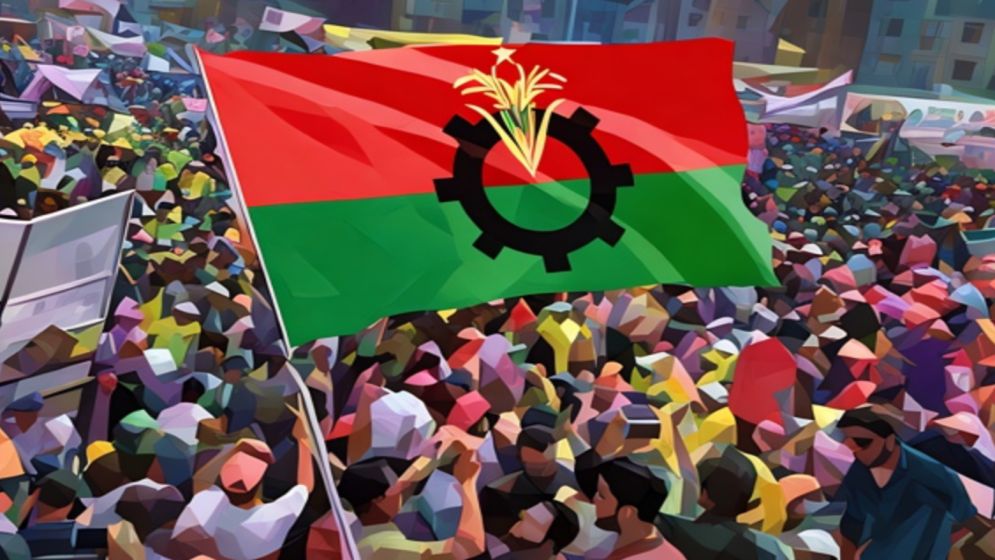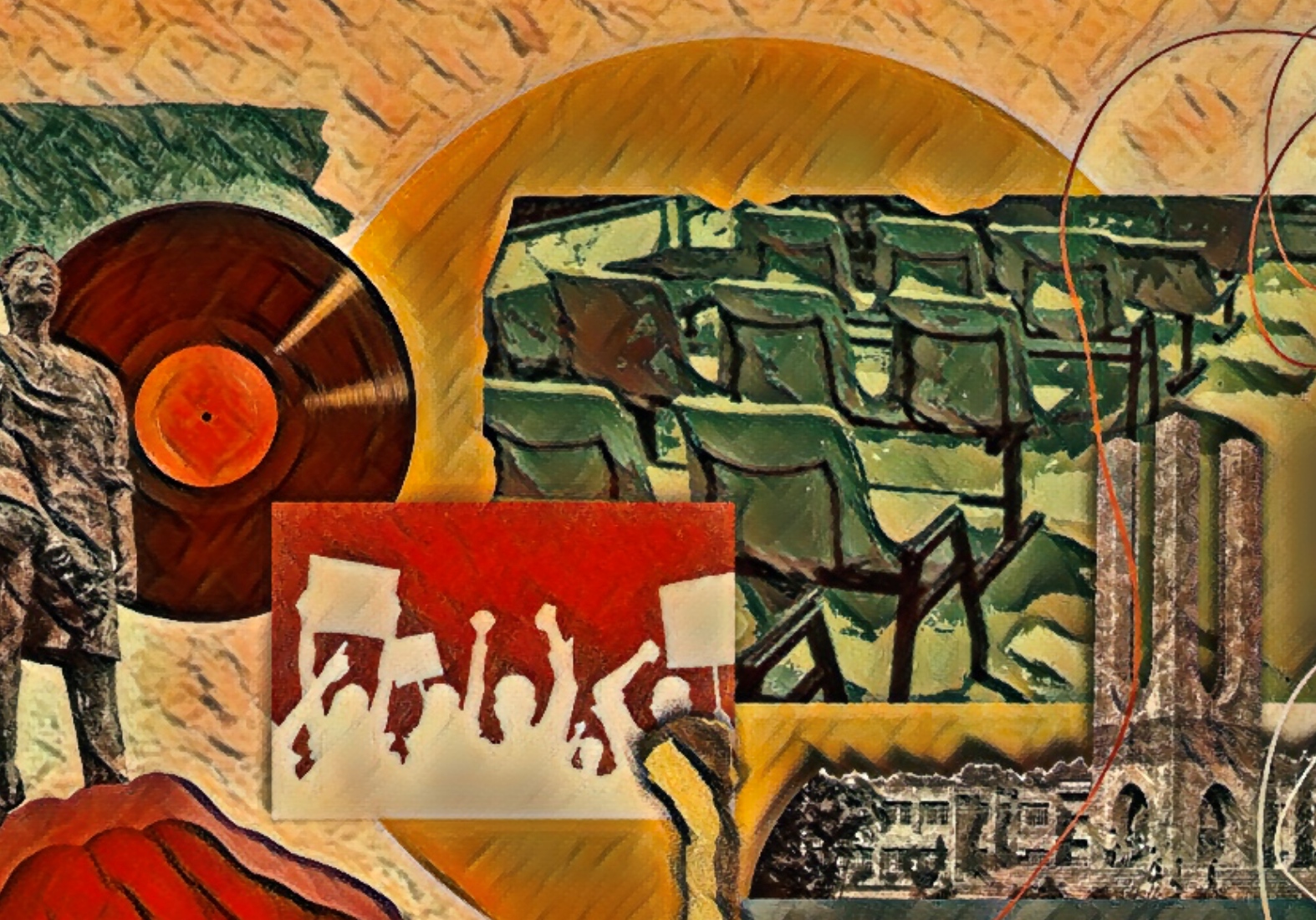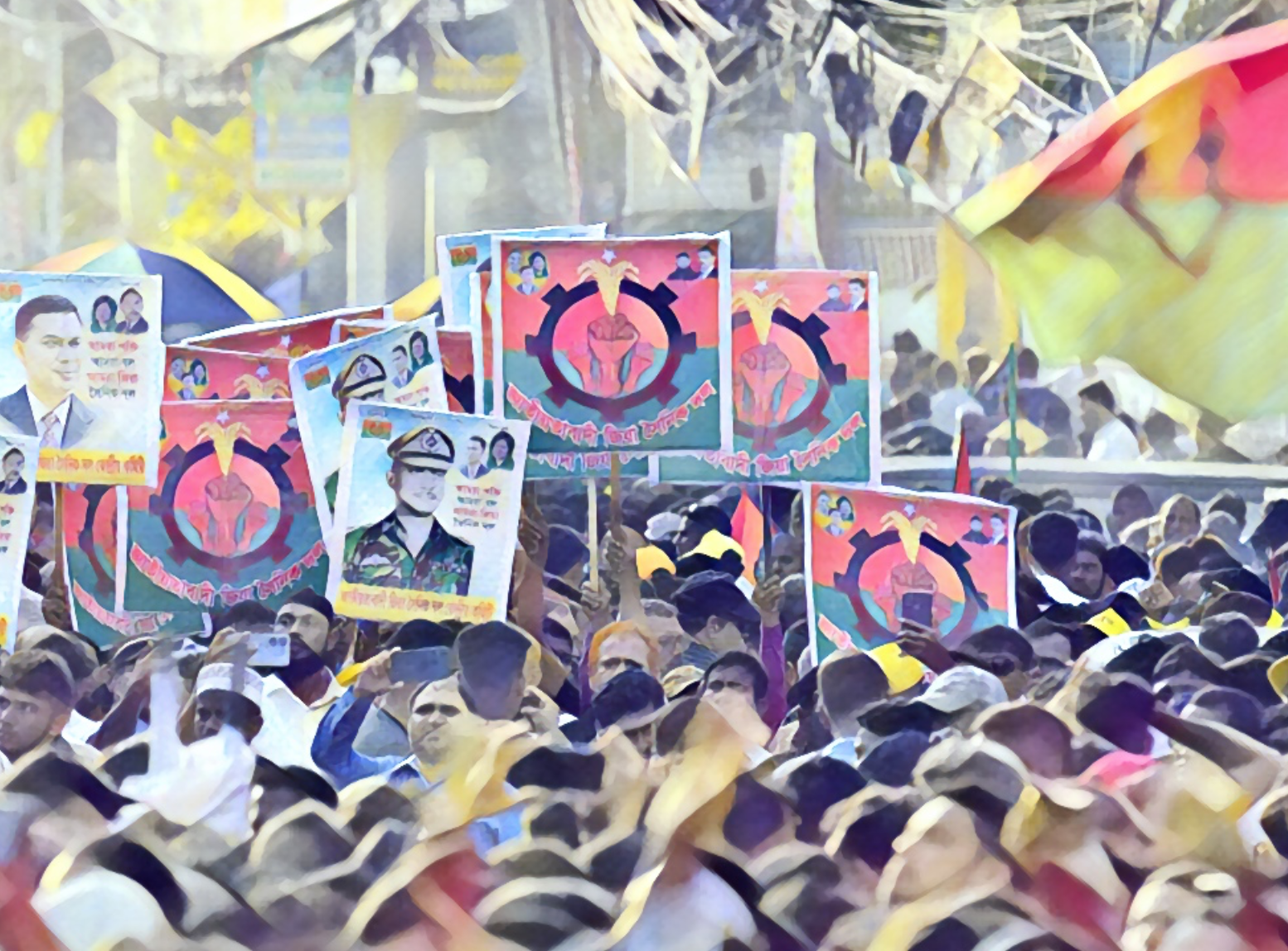Charting a new course: An open letter to Chhatra Dal on embracing change

Student politics in Bangladesh has long been a pivotal force in shaping the nation’s political and social landscape. However, as the country evolves, so too must the student organizations that once played such an influential role.
The Bangladesh Jatiotabadi Chhatro Dal (JCD) now finds itself at a critical crossroads: the choices it makes today will define its future relevance.
To remain a meaningful voice in the movement for change, Chatrodal must confront its own shortcomings, acknowledge past mistakes, and align itself with the values and aspirations of today’s youth.
One of the primary criticisms of Chatrodal is its growing detachment from the broader student body. Despite its historical potential, the organization has often struggled to address the issues that matter most to students today.
These concerns are not abstract; they are tangible and urgent: access to quality education, career opportunities, mental health, and a desire for greater inclusivity.
Yet, rather than focusing on these critical needs, Chatrodal has become bogged down by outdated practices and internal divisions, pushing away the very students it seeks to represent.
Without meaningful engagement on these issues, Chatrodal risks becoming a relic of a past era, increasingly irrelevant to the generation it claims to serve.
This failure to innovate and remain relevant has left Chhatro Dal struggling to resonate with a younger generation that is demanding real change.
Though the organization’s history may be adorned with moments of valor, the current reality is stark: Chhatro Dal is at risk of becoming obsolete. If it is to reclaim its position as a force for positive change, it must act swiftly to rejuvenate itself and reconnect with the pulse of the student body.
Equally troubling are the increasingly aggressive tactics employed by some members of Chhatro Dal. Reports of violent clashes and intimidation tactics—mirroring the notorious actions of the Bangladesh Student League (BSL)—undermine the democratic ideals that student politics should uphold.
Such behavior fosters an atmosphere of fear and division on campus, perpetuating a culture of hostility that alienates students rather than unites them.
The use of threats, physical confrontations, and intimidation not only tarnishes Chhatro Dal’s credibility but also discourages students from engaging with the organization. This toxic environment is counterproductive to its mission and must be reevaluated.
Perhaps the most alarming development, however, is the alleged resurgence of the "guestroom" culture.
A throwback to the darker chapters of student politics, this practice—characterized by coercion, humiliation, and forced allegiance—serves only to stifle free expression and political diversity.
Such regressive tactics stand in stark contrast to the ideals of democracy and open discourse that should define a vibrant student body.
This environment of oppression not only stifles intellectual growth but also undermines the very foundation of academic inquiry, which thrives on open exchange and debate.
If Chhatro Dal genuinely aspires to lead the next generation of students, it must dismantle these harmful practices and instead champion a culture of empowerment, inclusion, and critical thinking.
The future of Bangladesh’s student politics hinges on the ability of organizations like Chhatro Dal to evolve, to embrace new ideas, and to reflect the values of the students they represent.
Only by making these changes can Chhatro Dal hope to remain relevant and, more importantly, play a constructive role in the ongoing struggle for a just and democratic Bangladesh.

Embracing a revolution of
inclusivity, innovation, and empathy
In a rapidly changing Bangladesh, Chhatro Dal must undergo a profound transformation to remain relevant to today’s youth.
The landscape of student politics is shifting, and for the organization to continue playing a significant role, it must evolve in response to the values and aspirations of a new generation.
Today’s students are more digitally connected, globally aware, and deeply invested in issues such as equality, technological advancement, and social change. Chhatro Dal’s survival depends on its ability to align with these concerns.
First and foremost, Chhatro Dal must focus on truly understanding the needs and challenges of contemporary students.
This means actively listening to their voices, fostering open dialogue, and demonstrating a willingness to adapt. The days of demanding loyalty through coercion and force are over; today’s youth expect transparency, respect, and a meaningful connection to their leaders.
To shed its image as a political relic and regain relevance, Chhatro Dal must shift its priorities from power politics to student welfare.
The organization’s new focus should be on addressing the tangible needs of students—improving academic resources, promoting mental health awareness, and providing career development opportunities.
Workshops, career fairs, and counseling initiatives could reframe Chhatro Dal as a proactive force dedicated to supporting the student body, not just to securing political power.
Inclusivity should be the backbone of Chhatro Dal’s vision moving forward. This involves empowering young women, marginalized communities, and students from diverse backgrounds.
By encouraging female leadership and amplifying underrepresented voices, Chhatro Dal can build credibility and expand its appeal. Representation is not just a matter of equity; it’s a strategic move to ensure the organization resonates with all segments of the student population.
The digital era presents an essential opportunity for Chhatro Dal to connect with students where they are—online.
Establishing a dedicated digital media team would allow the organization to communicate its values effectively, counter misinformation, and engage students in real-time.
Interactive online content, live Q&A sessions, and partnerships with influencers could help modernize the organization’s image and establish it as a dynamic, forward-thinking force.
Innovation, too, should be central to Chhatro Dal’s activities. By organizing competitions, hackathons, and cultural events, the organization can inspire students to think critically, creatively, and outside the box.
Offering rewards such as scholarships, internships, and study tours would not only recognize and nurture talent but also further cement Chhatro Dal’s status as a progressive, innovation-driven entity.
Lastly, Chhatro Dal must take decisive action to address the allegations of violence, intimidation, and coercion that have plagued its reputation.
A clear, zero-tolerance policy for such misconduct, along with transparent mechanisms for accountability, are essential to restore the organization’s credibility.
Publicly committing to these reforms will send a powerful message about Chhatro Dal’s sincerity and its commitment to meaningful change.
If Chhatro Dal is to remain a viable force in Bangladesh’s political future, it must fully embrace the spirit of revolution—one rooted not in division and force, but in inclusivity, empathy, and a genuine commitment to student welfare.

Grassroots engagement and
transformative leadership
To remain relevant in Bangladesh’s rapidly evolving political landscape, Chhatro Dal must reconnect with students at the grassroots level.
One of the most effective ways to achieve this is through community-focused programs that directly engage with the issues that matter most to students and the wider society.
Initiatives such as drug awareness campaigns, blood donation drives, sports and cultural events, and local problem-solving projects will demonstrate the organization’s genuine commitment to social welfare and reinforce its role as a responsible force for good in the community.
Equally important is the need for leadership development within the organization. Offering training programs that focus on soft skills, public speaking, and conflict resolution will empower Chhatro Dal members to be effective, articulate representatives of the student body.
These programs will also cultivate the next generation of leaders, equipping them with the tools to navigate the complexities of modern politics and champion the issues that matter most to their peers.
At the heart of Chhatro Dal’s potential transformation lies the vision of Tarique Rahman, who has long advocated for youth-centered politics focused on development, inclusivity, and national pride.
His call for a politics grounded in progress and innovation should serve as a guiding light for the organization, urging it to align its goals with the aspirations of Bangladesh’s youth.
By internalizing Rahman’s vision of a forward-thinking, student-focused movement, Chhatro Dal can position itself as an organization that prioritizes intellect, integrity, and positive change. Translating these ideals into tangible, actionable strategies is not merely an option—it is essential for staying relevant in the new political era.
The world of student politics is undergoing a profound shift, and the old methods of intimidation, coercion, and empty promises no longer resonate with today’s youth. Bangladesh’s students are demanding more—action, transparency, integrity, and a clear vision for the future.
If Chhatro Dal fails to adapt to this new reality, it risks becoming irrelevant, disconnected from the very generation it seeks to represent.
For Chhatro Dal, the future belongs to those who embrace change and innovation. By transforming itself into a student-centric, inclusive, and forward-thinking organization, it has the potential to lead the youth toward a brighter future.
However, if it clings to outdated practices and neglects the pressing needs of today’s students, it will fade into obscurity. The youth of Bangladesh deserve an organization that reflects their dreams, their values, and their vision for a better tomorrow.
The time is now for Chhatro Dal to rise to the challenge and prove that it is capable of leading the next generation with purpose and integrity.
—
H. M. Nazmul Alam is an Academic, Journalist, and Political Analyst.

